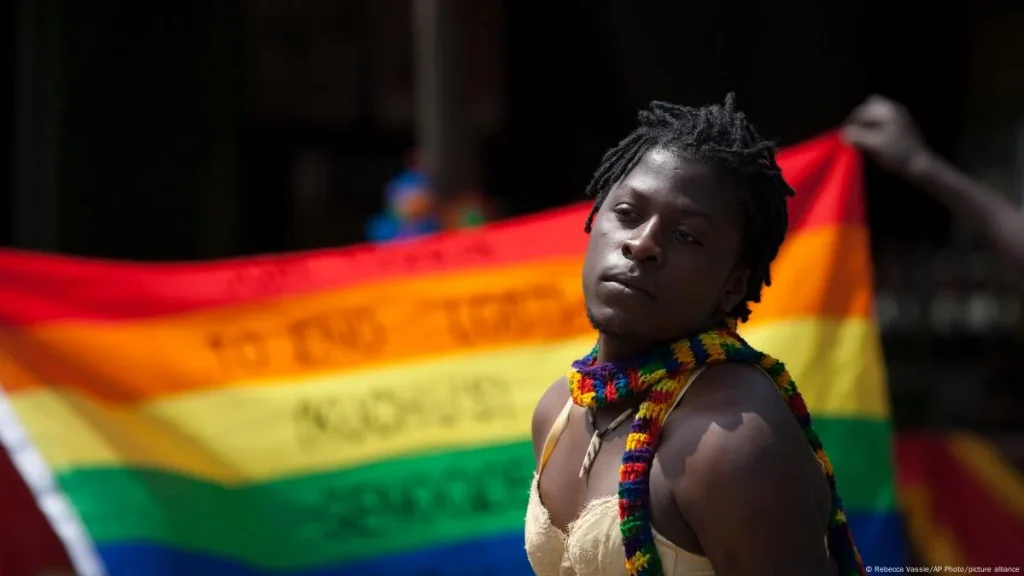On March 21, 2023, Uganda’s 557-seat parliament passed a stringent anti-homosexuality bill, with only one dissenting vote from Fox Odoi-Oywelowo, a member of President Yoweri Museveni’s National Resistance Movement and chair of the government’s human rights commission.
Building on colonial-era laws criminalizing homosexuality, the new legislation introduces the death penalty for “aggravated” offenses, though specific penalties remain unclear.
It also targets the “promotion” of homosexuality, raising concerns about vague wording that could broadly criminalize advocacy or support for LGBTQ rights.
Historical Context
Homosexuality has been illegal in Uganda since colonial times, but no convictions for consensual same-sex acts have been recorded since independence in 1962.
A 2014 anti-homosexuality law, which mandated life imprisonment, was struck down on a technicality.
The 2023 bill reinstates and escalates punitive measures, ignoring regional trends toward decriminalization in countries like Angola, Botswana, and Rwanda.
International Condemnation
UN High Commissioner for Human Rights Volker Türk called the bill “probably among the worst of its kind in the world,” urging Museveni not to sign it, warning it would criminalize LGBTQ individuals “simply for existing” and could incite systemic human rights violations.
Amnesty International’s Tigere Chagutah labeled it a “grave assault,” criticizing its ambiguous provisions.
US Secretary of State Antony Blinken highlighted risks to HIV/AIDS efforts, as the law could deter individuals from seeking healthcare due to fear of persecution.
UK officials, including Africa Minister Andrew Mitchell and LGBTQ envoy Nicholas Herbert, expressed dismay, noting the bill’s divergence from global decriminalization trends.
Health and Social Impacts
The legislation threatens Uganda’s progress in combating HIV/AIDS, as fear of prosecution may prevent LGBTQ individuals from accessing testing and treatment, exacerbating public health challenges in a country where HIV prevalence is around 5.4%.
The bill’s broad scope could also fuel discrimination, violence, and social exclusion, further marginalizing an already vulnerable community.
Political and Regional Dynamics
The bill reflects Uganda’s conservative cultural and religious landscape, with Museveni facing pressure from domestic supporters to uphold traditional values.
Odoi-Oywelowo’s lone dissent underscores the political risks of opposing such measures within the ruling party.
Regionally, the law contrasts with progressive moves in East Africa, potentially straining Uganda’s relations with international donors like the US and UK, who have linked aid to human rights compliance.






